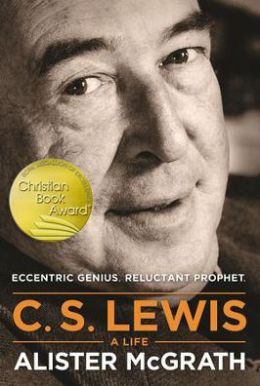 McGrath will completely change your thinking of Lewis if you assumed that he was simply a boring academic who wrote a few books and taught at Oxford and Cambridge University. The book is packed with remarkable tidbits about Lewis while pausing several times to evaluate the current scholarly views on various aspects of his life. McGrath analyzes Lewis's relationship with his seemingly negligent father, his struggle to find employment at Oxford University, his curiously terse comments about fighting overseas in the Great War, his apparent adulterous relationship with Mrs. Moore, his conversion to theism and, eventually, Christianity, the Inkling meetings, the influence that Lewis had on Tolkien's Lord of the Rings, his rise to fame in America and Britain on the heels of his BBC lectures during WWII and popular books, the "very strange marriage" to Joy Davidman, his move to Cambridge University, his death, and finally a chapter on his legacy, which seeks to answer why a smoking, drinking, adulterer who was not overly concerned with traditional Christian doctrines would be popular among evangelicals. In the midst of these chapters, McGrath devotes considerable time to each of Lewis's major publications, including the Chronicles of Narnia. I learned a lot about Lewis from McGrath's book and highly recommend it for those interested in an engaging introduction on Lewis.
McGrath will completely change your thinking of Lewis if you assumed that he was simply a boring academic who wrote a few books and taught at Oxford and Cambridge University. The book is packed with remarkable tidbits about Lewis while pausing several times to evaluate the current scholarly views on various aspects of his life. McGrath analyzes Lewis's relationship with his seemingly negligent father, his struggle to find employment at Oxford University, his curiously terse comments about fighting overseas in the Great War, his apparent adulterous relationship with Mrs. Moore, his conversion to theism and, eventually, Christianity, the Inkling meetings, the influence that Lewis had on Tolkien's Lord of the Rings, his rise to fame in America and Britain on the heels of his BBC lectures during WWII and popular books, the "very strange marriage" to Joy Davidman, his move to Cambridge University, his death, and finally a chapter on his legacy, which seeks to answer why a smoking, drinking, adulterer who was not overly concerned with traditional Christian doctrines would be popular among evangelicals. In the midst of these chapters, McGrath devotes considerable time to each of Lewis's major publications, including the Chronicles of Narnia. I learned a lot about Lewis from McGrath's book and highly recommend it for those interested in an engaging introduction on Lewis.I particularly enjoyed reading the sections on Lewis's relationship with Tolkien and Joy Davidman. McGrath presents a very convincing argument for how instrumental Lewis was in the development of the Lord of the Rings, prodding Tolkien to finish his massive project while offering encouragement and suggestions on how to develop the plot and characters. McGrath also helped me understand Lewis's relationship with Davidman, which he claims is different than the romantic version displayed in the 1993 movie Shadowlands, starring Debra Winger and Anthony Hopkins. Another significant contribution that McGrath makes is on the precise dating of Lewis's conversion. McGrath takes great pains to show that Lewis's own recollection of his conversion in Surprised by Joy is off by about one year.
There is very little about McGrath's book that I didn't like. I would have, however, liked to know more about Lewis's brother Warnie, who succumbed to alcoholism. Very little is mentioned by McGrath on the genesis of Warnie's addiction and his close relationship with Lewis at their residence, The Kilns. We simply read that Lewis occasionally had to clean up puke from Warnie after his various binges. I also wondered about Joy Davidman's son, Douglas Gresham. In the movie Shadowlands, he seems to have formed a bond with Lewis and has become an important guardian and promoter of his step-father's legacy. Yet McGrath offers very little information about Lewis's relationship with him.
Putting these quibbles aside, McGrath's book makes a welcome contribution to the study of C. S. Lewis and would make a very good gift for those interested in religious biographies.
No comments:
Post a Comment